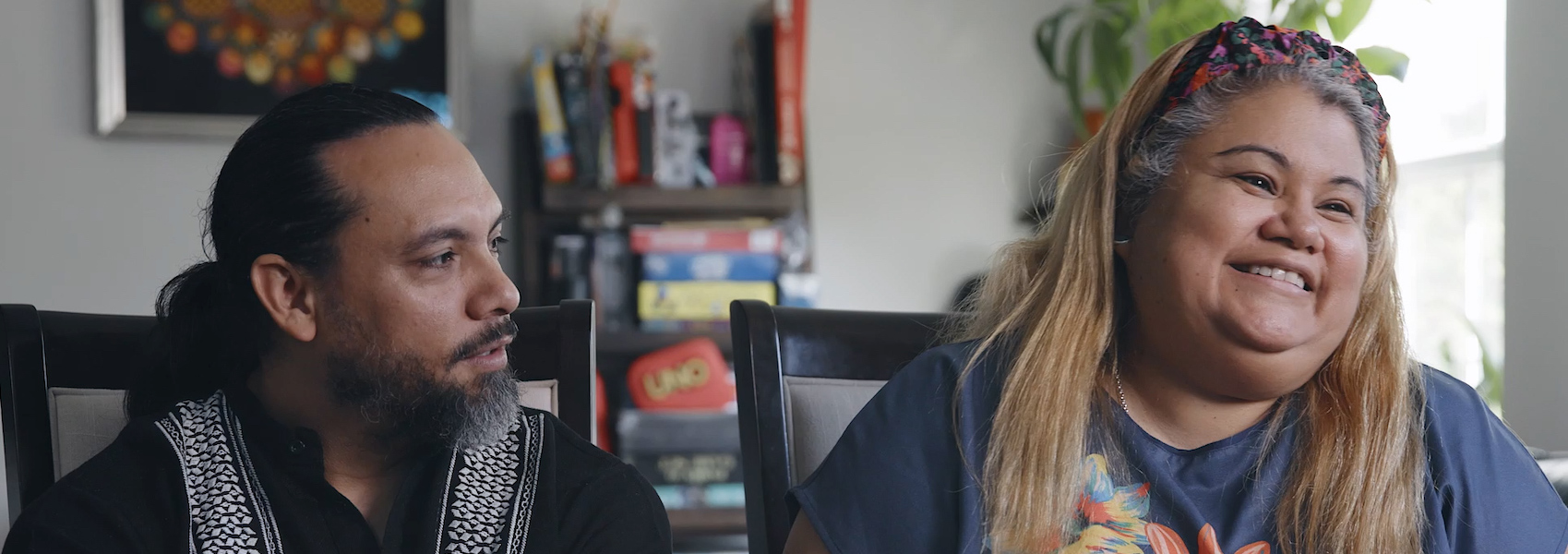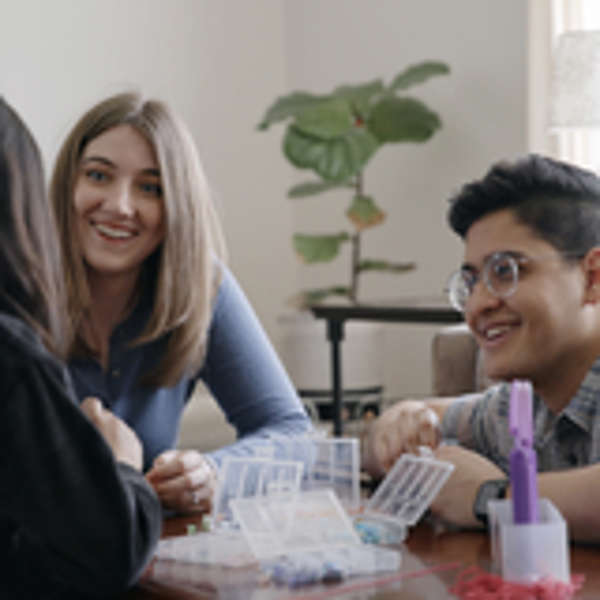Here, you can just be a kid
Bilingual couple recognizes the importance of laughter and play in providing short-term immigrant foster care.
Cara Salazar, content writer

Cesar and Alexia remember feeling a tug on their hearts after returning home from visiting family in Canada.
“They have six kid who were always running around, being crazy busy, and we had such a good time," says Alexia. "We don’t have biological children, and when we came back to our big house, there was silence. That’s also when we saw the treatment of children at the U.S. southern border and thought, that’s not right.”
Wanting to do something, Cesar and Alexia took steps to become foster parents. In nearly two years, they’ve fostered almost 60 unaccompanied migrant minors. The bilingual couple says that while every child is different, they recognize most have experienced some level of trauma during their journey.
“One thing that seems to be the same is the roller coaster of emotions,” says Alexia. “[The children] are missing their parents, and they often come to us exhausted and disoriented after a very tough journey. It seems to be especially difficult at bedtime. They’re tired and everything sinks in—they’re missing their parents, grandparents, or auntie who usually tucks them into bed. Sometimes their emotions just explode with lots of crying. It’s a challenge.”
Recognizing the emotional journey of immigrant foster care children, Cesar and Alexia discussed early on that they wanted to create fun experiences and creative opportunities for children in their home.
“I always try to remember to let the kids just play and be happy,” says Cesar. “We take them to the Maryland Science Center. They’ve learned to swim. We go camping. We have spontaneous dance parties. Just a variety of activities where they can try new things. We want them to know that here, you can just be a kid.”
Alexia says the reality for many unaccompanied migrant children is that they’ve had to grow up fast and are used to having a lot of grown-up responsibilities.
“Often, the children have had to take care of family members, and it can be hard for them to just act like kids. They’re almost like miniature adults because they’ve had jobs like selling street food. While we ask them to do age-appropriate household chores, we just want them to have fun and often have to say, "It’s time to play now.”
Cesar and Alexia understand the kids they care for are only in their home for a short time, and quick reunification with family or a sponsor is the goal. They encourage others to open their hearts and home.
“It’s all worth it,” says Alexia. “I will see a smile or hear it in a giggle or joke, and think, Why didn’t we do this sooner? We encourage others to get involved. If you have compassion and patience, it’s a wonderful experience.”



